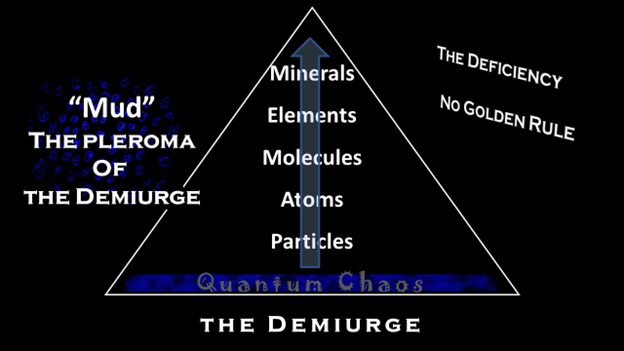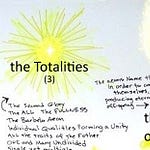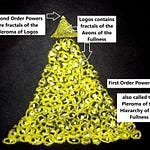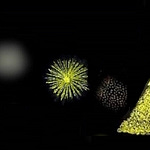Welcome back to Gnostic Insights.
Last week, we had part one of Correspondence with an Educated Atheist, and after posting that, I received an email from my correspondent, and it was very interesting because it turns out that all this time I thought I was corresponding with a female because this person’s name is one of those gender-neutral names, like my own name, Cyd. I was often miscategorized as a male coming into a new classroom or, like, going to summer camp I was put on the boy’s side and so forth because my name was unusual back in the 1950s. So this person has this sort of name that could be taken either as male or female, and I just assumed it was a female. That’s a funny thing to me.
Now, flip that whole conversation from last week, and every time I said she, please insert the word he, and now I’m re-recording part two so I can correctly identify my correspondent. He was very gracious about the misunderstanding, of course. Very, very nice person.
He had asked, “Is it possible that the truth of creation might be something difficult or even something unpalatable?”
And I answer, well, that’s what a lot of people are saying, isn’t it? I think it is a message meant to dishearten us, meant to depress us. I notice that the people who believe that are not happy campers. In the end, it doesn’t matter what memes we cling to here on this material plane. All will be revealed when we pass over to the other side.
He asks, “Is it too much to ask for some sort of indication or revelation or glimpse of the existence of the Fullness? What actions would you suggest should be the next step?”
And I say, it’s not too much to ask. It’s what prayer is all about. If you have never prayed to the higher power, you simply find a quiet spot or maybe in the middle of the night when you’re lying in bed awake and you just ask the Source to reveal itself to you. “Ask and you will find. Knock and the door will open.” [Matthew 7:7] You can ask for revelation. You can ask for an unmistakable sign.
When I was a young believer, I would ask for things expecting them to happen, and they did. Once as a teenager, I was hitchhiking up the California coast. I had no fear for myself because I was and still am an innocent, and I believe that Jesus walked everywhere with me and that he would protect me from all harm. One night I camped with strange men, but I preached to them and no harm came to me. In the morning, we were all hitchhiking together for the first ride of the day, and I prayed out loud for a red pickup truck to come and pick us all up. About a minute later, a red pickup truck came and picked us all up. It was quite a testimony to those men, like a real miracle.
I realize that Christianity has gotten a bad rap lately in the progressive and atheist circles, but remember that the institution is not the Source. The map is not the territory. You can pray to Jesus or to the Father or to the Source or to the Fullness of God. They are all listening. If you pray for revelation with an open heart, your heart will be filled and you will know. Millions of people throughout the years have done just that and have come out the other side walking with God, walking with Jesus. This has nothing to do with salvation or church doctrine. This is going to the Source. I love you. I’m proud of you for opening up and exploring these spiritual depths—onward and upward.
In our most recent correspondence, he says,
Thanks so much for taking the time to answer my questions in some detail. I will take a while to read and reread your answers. I have found the Simple Explanation book on Audible, so I am going to download it and listen in the car as a starting point. Gnosticism is complex, he says, yet also appealing. There are a few things that don’t seem necessary, like a complex celestial hierarchy with different Aeons and their pre-assigned roles, rather like cogs in a great machine.
As someone who has spent a lot of time with historical texts, this name and place function in a heavenly order feels like the product of an ancient worldview. As we know, the establishment church and the kings loved order and it was stressed for their own reasons. However, just as modern humans are all about individuality, at times overly, ancient societies were obsessed with kingship and order.
So just as it is a feature of New Age religions that it’s all about individual Self-expression, does it follow that the writer of the Tripartite Tractate was reflecting the perception of a rigid order and hierarchy in heaven? This business of a complex organizational structure in heaven with angels, archangels and the rest of it kind of feels like the product of a human imagination. Is that a fair point?
He goes on to say, however, putting that aside, all of the key questions that have made me rule out religions in the past, the cruel concept of original sin in Christianity and likewise karmic punishing people for past life mistakes in Hinduism, Buddhism are thankfully missing in your version of Gnosticism, which is a huge positive. It’s elegant to universal salvation, having a fall that explains suffering, but not a fall by humans.
To my skeptical agnostic ears, key aspects of your Gnostic reformation have the ring of truth. The fractal stuff is fascinating, too. I don’t come from a science background, so I’ll probably take your word on that.
So here’s a question that may put my mind at rest. Given that my spider senses are tingling, telling me some of the concepts in the Tripartite Tractate sound a bit historically located and hence man-made, would it be fair to say that the words of the Tripartite Tractate are a version of the universal truth, recorded by a fallible human hand, with possibly a few simplifications and misinterpretations? Or do you believe that every word in the book is divine and immutable? No need to answer in a hurry. Don’t let me distract you, but I’d be intrigued to find out at some point.
Okay, so here’s my latest answer. The hierarchy isn’t about power, haves and have-nots. It’s about jobs that need to be done and the relationships among neighbors. Think of the Aeons as cells in your body or cells in a slime mold. Every function and every job is necessary and equally important. The brain is no more important than your skin, etc. However, the king of your body is your self-aware identity. You need to be in control of your body or else some other organ will attempt to take charge. It is the natural order of things. When people don’t pay attention to their body parts, the body parts take control, and the next thing you know, you’re addicted to something or another.
And I didn’t put this in my email because I was in a hurry, but then I was thinking afterward of the best answer to the hierarchy question. Remember, the Aeons self-sorted themselves into this hierarchy. They were not placed there. They were not made subordinate to others or above others by some higher ruling power. They self-sorted. It makes a point of saying that in the Tripartite Tractate. And what they sorted themselves into were functions. Their place, their function, their duties, their neighbors, their names for themselves. They gave themselves their names. And the reason it’s hierarchical is because the higher the fewer.
The higher the fewer is a basic Gnostic precept. And the reason is this. In my concept of how things go together and of how the Fullness of God works and how our bodies work, it’s part of A Simple Explanation of Absolutely Everything. The most basic parts of the material universe are the subatomic particles and the particles. And they level up to make atoms. And the atoms hold hands with one another and they level up to make molecules. And the molecules hold hands with one another and they level up to make elements. Now, think it through. There’s more atoms than there are molecules. There’s more molecules than there are elements. And so every time you go up a level, there’s fewer. So it’s naturally building the higher the fewer.
So if you think of your family and, say for example that you’ve got four brothers and sisters and a mom and dad—a nice big family. Well, there’s six of you, right? But you hold hands, cooperate with one another according to the Simple Golden Rule, and what do you make? You make one family. There were six and now it’s leveled up to one. So the higher—that is the family—the fewer. And that is why a hierarchy looks like a hierarchy. It’s not a matter of thinking that the ones lower down are less important or not worthy. It’s that they are the basic foundations that make everything else possible.
As a side note, the Demiurge is in charge of that material level, the subatomic particles up through the elements and the mineral aggregations. And then the life comes down from above.
The life, love, and consciousness comes down from above during conception and creates the spark of life that then changes it from mud, mud up, that’s the material level of the Demiurge, the mud, to the spirit down. The spirit is what gives life and love and causes the molecules to be able to walk around in the form of our bodies.
Finally he asks whether or not the Tripartite Tractate is sacred gospel or immutable truth, divine and immutable.
I answered that obviously the Tripartite Tractate was written by a man who was historically contextually located. But I’ve found that the Tripartite Tractate is the best Gnostic text to explain these things. Now, I myself, Dr. Cyd Ropp, I am also historically contextually located as well. When I write The Gnostic Gospel Illuminated, or A Simple Explanation of the Gnostic Gospel, it is also my rewording the Truth that has come to me. If once you discover the Gnosis inside of you and you feel fully comfortable and you can put all the pieces together, I’ve been putting these pieces together my entire life, then you can also write an inspired gospel.
And let me mention this now as an addition to our conversation—when I write my gnostic insights, I only share what seems absolutely true to me. Then I run that gnosis past my brother, Bill, in conversation to see if the logic holds up. If I am unsure of something, I don’t share it. Sometimes Bill and I ponder an insight for months before the truth of the matter becomes clear. Some things we are still pondering. The last thing I want to do is lead people astray with false teaching. Perhaps the writer of the Tripartite Tractate had a similar process. I don’t channel this information from any spirit other than being informed by the Holy Spirit, and that often comes to me whilst I am in the process of writing or walking the dog.
And the bottom line is there’s only one truth. There’s only one Father. There is only one originating consciousness. We carry that consciousness but we have forgotten the Source. We have forgotten that the most important expression of consciousness is the love of the Father. In Christian parlance, the Christ is the only infallible reminder of that Father and that Love. As long as we remain in ignorance and spiritual rebellion, we cannot access the gnosis that we already carry within us.
And it all comes down the pike logically. It all unfolds in a way that it must. So the reason I like the Tripartite Tractate is that it’s not just mythological stories that are random; it’s a logical progression from there to here and back again.
And if my correspondent thought that the hierarchy of angels and archangels and the Fullness of God was extraneously complex, boy, don’t dip into any other of the Gnostic gospels that are out there in the Nag Hammadi or the Qumran scripts, because they’re full of extraneous information, in my opinion. You don’t have to memorize this and that. You don’t have to know these arcane relationships between gods and goddesses. You don’t need access to esoteric rituals or incantations. All I have ever wondered is how do we get from the Source, the spirit? We know that we’re down here standing in the dirt, literally. How does that ambulate this body of mine? And how is it that my body is conscious with consciousness that had to have come from the Source?
He asked me whether or not the Tripartite Tractate, or the Bible, or the Koran is meant to be the infallible word of God. How might they have been handed down? He says, “I sense that the gnostic take is more about us already knowing the truth inside us rather than having to rely on an angel or a burning bush, etc. to dictate it to you.”
My gnosis tells me these things I tell you here on the podcast. I am a human with a lifelong relationship with the ethereal plane in the form of Jesus, endowed with a sure knowledge of the ethereal plane and the capability to reason. The humans who wrote the holy books are no different in kind than me or you. They, like me, are simply writing down their experience with the numinous and its manifestations. We see the world from our point of view.
Okay, finally, one more thing. I told him to read the 21st verse of the Tao Te Ching to answer the question of how do we know there’s anything like an originating consciousness? That is the verse that opens A Simple Explanation of Absolutely Everything. Let me read it to you here, now. Listen to this. I think it’s fabulous.
This is the 21st verse of the Tao te Ching, which is ancient Chinese, and it’s not anything to do with Hebrews and Christians or even Egyptians and Phoenicians.
There are many translations of the Tao Te Ching. The original Tao Te Ching is ancient. It's thousands of years old, and it's written in pictograms. And you know, these pictograms aren't words or letters. They're open to interpretation because they are pictures. It's like a dream—how do you interpret a house when you are in a house in your dream? What is the meaning of the house?
So what I used is Jonathan Starr's translation of the Tao Te Ching, the definitive edition. And what Starr has done is written out his interpretations of the verses because, by the way, if you read any popular translation of the Tao Te Ching, it's that author's interpretation of the pictograms or that author's interpretation of someone else's interpretation of the pictograms. Well, what Jonathan Starr did was literally translate, in the second half of his book, each pictogram in every verse—all the possible meanings of that pictogram. And then that way, you can read one of the verses by reading all possible translations of every word and see what falls into place for you. And this translation that I'm about to read to you was my translation via those literal translations by Jonathan Starr. And I wove my way through verse 21 in the Simple Explanation manner.
If you wonder about my translation, go ahead and pick up any other popular translation and compare verse 21. I think you'll find that the meanings are the same, but here it is in simple explanation terms:
Highest virtue arises through total alignment with the originating source of consciousness. How to become one with this elusive source? By disregarding everything else. Oh, so elusive, so very indistinct.
Yet within its dimensionless center, dimensions form. So uncertain, so intangible. Yet its middle contains the latent substance of all things.
So profound, such a mystery. Housed deep within that mysterious middle, the seed of life is consciousness itself. The life force within is self-evident.
Thus life itself provides trustworthy evidence of the originating source. From the first moment until now, the manifestations of consciousness remain ever the same. Thus do we all bear witness to the creator, the originator.
This is accordingly how I know the ways of everything and the origin of all things, by observing what is within me.
Well, I have time here at the end of this episode to add a postscript, because I did just get another correspondence this morning. Our dear Correspondent's mother has passed away, and he found himself in church this week, thinking about the hymns and the readings in terms of our Gnostic Gospel.
The reading, he says, was Psalm 23, and since I did a podcast on that one and I was positive about it, he said that he doesn't like being thought of as a sheep, that atheists are a proud lot, and even giving it the benefit of the doubt, it's hard to fill an affinity with being a sheep. He says that it's a farming community here, and sheep, cute though they are, are remarkably stupid creatures, according to my friend Luke, who grew up on a farm herding them.
Well, people are like sheep. In fact, during the pandemic and during the great hoaxes that were perpetrated against the people, the Americans came up with the term sheeple, not people, but sheeple, because people are like sheep, and I'm surprised that our educated atheist does not see them that way. People are very easily led and deceived, propagandized, convinced of whatever those in power want them to believe. With enough repetition, the sheep will believe that. So I don't have a problem at all of thinking of people as sheep.
Of course, some of us are not as sheeple as others. No problem with that. There are those sheep that wander off by themselves or that are always on the outside of the herd. It's more dangerous on the outside. You can get picked off by predators that way. It's more dangerous to wander off because you can fall into holes and traps. But to think of us as sheep and to think of Jesus as our shepherd or “the Lord is my shepherd,” I find that very comforting.
Pride cometh before the fall, and I associate the word pride or being a proud lot as large ego, because in our one true Self, when we are in alignment with the Father or the Father's will, we're not being led by our pride. We're being led by God's will or by our shepherd. So it's best, in my opinion, not to work from pride.
It's okay to take pride in your work or your output. I take pride in the things I do when I do them very well, and I always attempt to do things as well as I can. I work to the best of my ability. I don't just try to skate by. But that's different than being proud. I am not proud in my own egoic output. I am proud at being the best Cyd that Cyd can be. And that's a gift from God. My talents are aonic in origin, so I am thankful rather than self-satisfied. But I do like to do a good job.
He also mentioned the idea of giving glory. It really popped out in church that they were asked to give glory to God, and he was wondering, that seems like demiurgic, that it may be that the Demiurge wants people to worship and glorify him.
But would the Father or Christ ask for glorification as if it was egoic praise? He said, I've always been a bit baffled about the whole concept of glory. Does this business of demanding praise and glory have a whiff of the Demiurge about it? An egotistical God ready to smite us if we do not praise him? Why would any supreme being be bothered about whether I was praising him or not, he asks.
Perhaps this is being a bit unfair, he says. You're using glory, not praise, but how does one give glory anyway? Isn't the thing that you are meant to be giving the glory to, the all in all, already glorious enough without human contribution?
And yes, I think it is. And I cover this—we've had previous episodes about giving glory, and it's in the book. Because I remember saying, God doesn't demand glory as if he were needy and wheedling for our praise. That isn't the point of giving glory. When the Son and the Father exchange glory, when the ALL gives glory, yes, they are reflecting the light of the Father in the original meaning of the word.
My friend here has sent me the definitions of glory, and in classical Greek, doxa often meant opinion or reputation, particularly in terms of how someone is perceived by others. And isn't that interesting? Because they use the word dox nowadays to expose a person in social media, right? So they're using a classical Greek word there when they dox someone. But in biblical Greek, Hellenistic Greek, it says, by the time of the New Testament and early Christian writings, such as the Tripartite Tractate, doxa evolved to denote glory in a divine or transcendent sense, the honor, radiance, or majesty associated with God.
Now, I think of giving glory as this. Imagine that you are parents, and the mother has just given birth to the baby, and you love that baby. You love that baby with all of your heart. With all of your heart. Can you imagine staring at your newborn child and the overflowing love that you feel toward that child? That is giving glory. It's overflowing love and admiration. It's not fear. It's not trembling. It's not, oh, you are so wonderful, oh, you are so wonderful, repeated 13 or 300 times. It's appreciating the radiance and glory of the Father, appreciating the beauty of love, reflecting the love that's being radiated outward.
That's what giving glory is. It's reflecting the love that's been radiated out in your direction, and you're reflecting it back to the source because of love. It's love.
At least that's how I look at it. Okay, that's enough for today.
Say, listen, I’m really feeling an urge to get this Gnostic Reformation expanding to more people. I have been reluctant to employ social media to that end. For one thing, it’s very difficult to capture gnosis in little sound bites.
But you, having listened to Gnostic Insights and the Gnostic Reformation now for weeks, months, or years, you are having this gnosis within you that you can share with other people and say, Hey, have you heard this Gnostic Insights podcast? Why don’t you tune into it? It’s very interesting. Or pick out an episode that you like very much and choose to share that one episode with one of your friends. So how about you encourage some other friends to listen to the podcast? Or if you’re on Substack, encourage other friends and family to subscribe to this Substack.
I would be happy to repay you in kind by corresponding with you, answering your questions personally and privately or publicly, as these past two episodes have been. So, let’s get this Gnostic Reformation underway. So many people are needing this. So many people who have been alienated by the Church need to come back to the love of the Father. And this is one way to do that.
p.p.s. no sooner had I recorded and written this plea yesterday, than a friend texted me requesting 15 copies of the pocket edition of The Gnostic Gospel Illuminated to share with friends. Wow! An immediate answer to prayer.
Onward and upward, and God bless us all.
















Share this post